Writers are known for their peculiar personalities. There are some quiet ones, the misunderstood ones, the writers who rose to fame overnight, the depressed ones, storytellers who are shrouded in enigma, and then there are some authors who died tragically. The literary legends gave us many worlds to escape in but their own lives were filled with tragedy.
They left us wondering how their stories might have unfolded had fate been kinder. In this article, we are going to talk about the lives of 13 famous authors and their bizarre untimely deaths. Their lives were shortened before their stories could fully unravel. The greatest paradox here is that even though they are dead, their words still echo through time. Let’s get started.
1. Edgar Allan Poe (1809-1849)

Last Words: “Lord help my poor soul.”
Edgar Allan Poe made gothic cool even before people knew what gothic literature meant. His personal life was, however, full of tragedies. He was orphaned soon and was later raised by a wealthy and influential family. He then went on to become an unhappy writer after the death of his wife. His famous works include The Tell-Tale Heart, The Raven, and The Fall of the House of Usher.
All of these books explore heavy themes related to death, madness, and the supernatural which mirror the darker aspects of his own life. A tragic marriage left him broke and lonely. His wife, Virginia, was just 13 years old when she got married to Poe. She suffered from Tuberculosis in 1847 and died. Poe’s life spiraled out of control and he found himself in the darkest corners of liquor taverns.
In 1849, he completely sank into madness. He was mostly found in a delirious state, wearing clothes that didn’t belong to him, and not able to explain how he found himself in such a state. The details of his death are still unclear and nobody knows how he died. Some claim it was alcohol poisoning on the night of October 7th but others speculate that he could have suffered from rabies. His death remains one of the most mysterious writer deaths of all time.
2. Ernest Hemingway (1899-1961)

Last Words: “Goodnight, my kitten.”
You can add Ernest Hemingway’s name in the list of authors who committed suicide. He was a 20th-century American writer known for his minimalist prose and adventurous life. Some of my personal favorite classic books like For Whom the Bell Tolls, A Farewell to Arms, and The Old Man and the Sea were authored by this legendary classic writer
He spent most of his adulthood being depressed and letting alcohol consume his entire being. He once famously said in an interview, “Write drunk, edit sober.” Apart from his mental illness, he also battled physical ailments. Because of his heavy drinking, his liver was damaged.
While he was grappling with hemochromatosis, his father, brother, sister (a total of seven family members), killed themselves. They were all suffering from depression. One tragic night in 1961, he bid goodnight to his wife and went to clean his gun. His body was found in the foyer and it was declared an accidental death. However, his relatives knew and called it a suicide.
3. Leo Tolstoy (1828-1910)

Last Words: “But the peasants…how do the peasants die?”
Leo Tolstoy, the greatest American novelist of all time, also had a tragic death. Despite his literary success for War and Peace and Anna Karenina, his last 10 years were deeply tumultuous. He belonged to a wealthy family but during the later years of his life, he renounced his wealth and aristocracy, embracing a life of simplicity.
This radical shift, however, clashed with his wife Sophia’s values, igniting a series of bitter disagreements between them. Their relationship ultimately unraveled when he quietly slipped away from the comforts of his grand mansion all of a sudden in the middle of the night. Tolstoy sought solace in the humble confines of a small stationmaster’s house where he ultimately succumbed to heart failure.
4. Albert Camus (1913-1960)

Last Words: “Good. Last letter. Just to tell you that I arrive Tuesday … Soon, my Superb.”
Known for his concept of absurdism, Albert Camus explored existential themes and often questioned the purpose and meaning of life. His most notable works include The Stranger, The Myth of Sisyphus, and The Plague. When he was 44 years old, he won the Nobel Prize in Literature, one of the youngest recipients ever.
In 1960, Camus died in a car accident. His initial plan was to take a train to Paris but his publisher, Michel Gallimard, invited him to travel by car. Gallimard lost control of the vehicle, crashing into a tree. Camus died instantly, while Gallimard died days later in the hospital.
What’s perplexing here are some theories that suggest this accident wasn’t random. A 2011 claim by a scholar alleged that the KGB (Komitet Gosudarstvennoy Bezopasnosti), angered by Camus’ criticisms of Soviet repression, may have sabotaged the car they were traveling in. Their claims are strong and they argue that he was assassinated by the Russian spies. His death is still an unsolved mystery. Was it an accident or a murder? We will never know.
5. Virginia Woolf (1882-1941)

Last Words: “I don’t think two people could have been happier than we did.”
In the list of dead authors who took their own life, Virginia Woolf also battled depression and other mental illnesses like bipolar disorder. Her most famous works are Mrs. Dalloway, To the Lighthouse, and A Room of One’s Own. She is among the early feminist writers who reshaped literature with her stream-of-consciousness style of writing.
On March 28, 1941, Woolf wrote farewell letters to her husband, Leonard, and her sister, Vanessa. She then walked to the River Ouse near her home in Sussex, filled her pockets with stones, and waded into the water. Her body was discovered three weeks later.
6. Sylvia Plath (1932-1963)
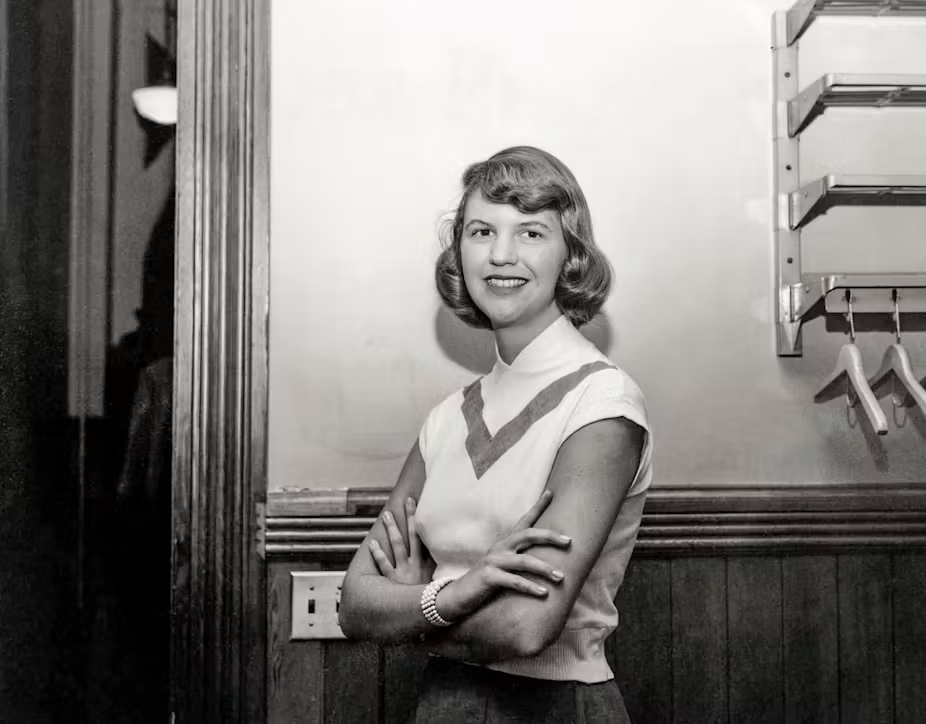
Last Words: “The appeal to heaven breaks off. The petals begin to fall, in self-forgiveness. It is a flower. On this mountainside it is dying.”
A brilliant poet and novelist, Sylvia Plath wrote about her mental illness quite often. The sad part about Sylvia Plath is that her personal life was and is still the most talked about thing instead of her rich, heartbreaking, and beautiful confessional poems.
Plath’s personal life was turbulent. She married British poet Ted Hughes in 1956. They were a literary couple who couldn’t be more in love. Sadly, their marriage was rainbows and butterflies only for a short time. Her husband started cheating on her with many women.
They were two greatest writers of their time and they both wrote about each other a lot. Ted Hughes was a good writer but a terrible husband. In one of Plath’s letters, she writes that her husband beat her which led to the miscarriage of her second child. The truth came out and it was found that Ted was not just a womanizer but also mentally and physically abusive toward his wife.
But what broke Sylvia the most was his affair with Assia Wevill, another fellow writer. Grief consumed her and she couldn’t take it anymore. On February 11, 1963, Plath took her own life at just 30 years old. She sealed the kitchen with wet towels, turned on the gas oven, and laid her head inside. She died from carbon monoxide gas poisoning.
7. Christopher Marlowe (1564-1593)

Last Words: “O, no end is limited to damnèd souls”
Christopher Marlow, Shakespeare’s greatest contemporary, was an English playwright and poet. Just like The Bard, even Marlowe wrote for the theater. He was not just a writer. He was also believed to be a spy for Queen Elizabeth I’s government.
He hated following the laws of the country and was frequently caught by the police because of his atheistic beliefs and blasphemy. In 1593, two weeks after coming out of prison on bail, he was killed in a mysterious altercation at a tavern in Deptford.
According to the official reports, Marlowe was stabbed just above the eye after a quarrel broke out between him and Ingram Frizer. In the end, no one was charged for murder and the death was labeled as a tavern quarrel. However, today there are claims that he was murdered by the Queen’s Privy Council because he had unearthed some secrets.
8. Aeschylus (c. 525 – 456 BCE)
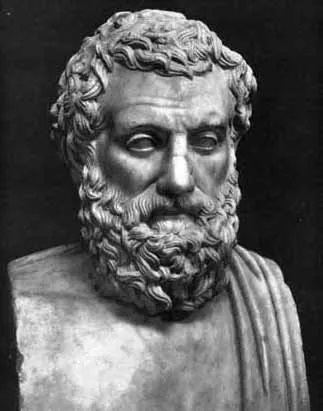
Last Words: Not known.
Aeschylus was an Ancient Greek philosopher and playwright. He was also known as The Father of Tragedy. He wrote over 90 plays but only seven survived including The Oresteia and Prometheus Bound. Most of his works disappeared due to poor preservation methods. Also, his innovations in theater like introducing a second actor on stage shaped the future of drama.
Despite all that he contributed to literature, he is famously known for his bizarre and tragic death. His death remains the most unusual death in history. According to legend, he was killed when an eagle dropped a tortoise on his bald scalp. The eagle mistook his bald head for a rock and in an attempt to crack the shell, killed the playwright. The mysterious death of Aeschylus has caused many painters like Tobias Verhaecht and Maso Finiguerra to unleash their creativity.
9. Tennessee Williams (1911-1983)
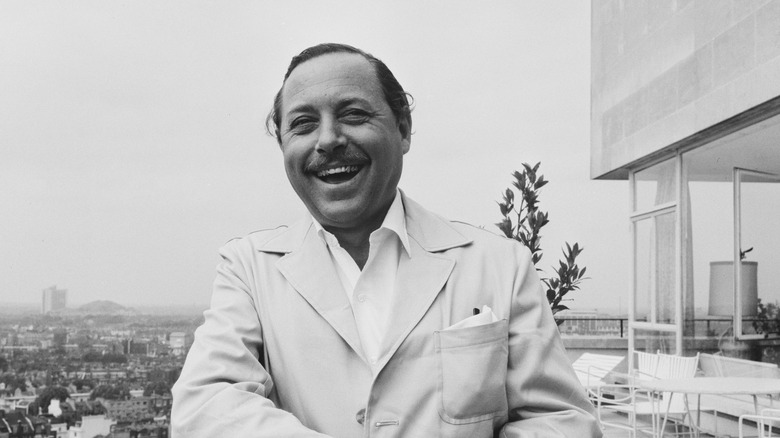
Last Words: “The world is violent and mercurial — it will have its way with you. We are saved only by love —love for each other and the love that we pour into the art we feel compelled to share: being a parent; being a writer; being a painter; being a friend.” (Said in an interview a few days before his death)
Tennessee Williams wrote some of the most famous plays of 20th century America like A Streetcar Named Desire and Cat on a Hot Tin Roof. Williams struggled with depression, addiction, and personal losses, including the sad demise of his beloved sister. Despite his success, he felt increasingly isolated in his later years. He turned to alcohol and drugs. Soon his heart started declining and he became increasingly paranoid.
Among the many fiction authors who died mysteriously, Tennesse Williams’ is perhaps the saddest of all. On February 25, 1983, Williams was found dead in his New York hotel room at the age of 71. According to official reports, he choked on a bottle cap from his eye drops while being heavily intoxicated from alcohol and drugs. His death was a slow descent into self-destruction.
10. Li Bai (701 AD – 762 AD)
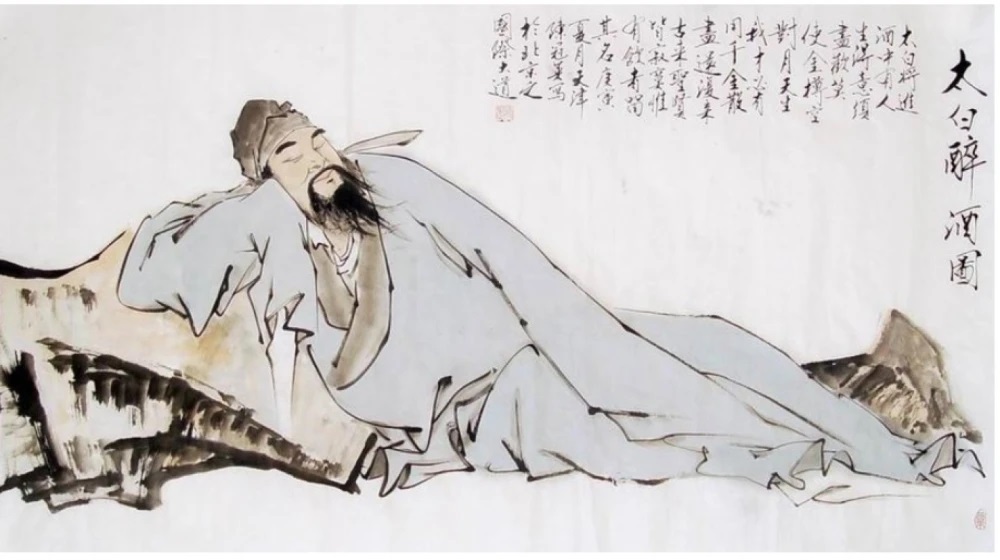
Last Words: Not known.
Li Bai was a great poet belonging to China’s Tang Dynasty. He mostly wrote romantic poems like Drinking Alone by Moonlight and Sorrow Untold. He loved three things in life: the moon, wine, and poetry. If popular folklore is to be believed, he drowned while drunkenly trying to embrace the reflection of the moon in the Yangtze River.
On the contrary, many people argue that he was murdered. He was executed due to political involvement in a failed rebellion.
11. Nikolai Gogol (1809-1852)
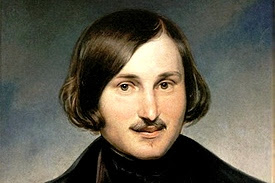
Last Words: “A ladder! Quick, a ladder.”
Nikolai Gogol was one among Russia’s influential writers. His famous works include Dead Souls, The Overcoat, and The Nose. His work was satirical and often critiqued the Russian society and government. It is believed that Dostoevsky was deeply inspired by Gogol’s works.
Gogol’s personal life was chaotic. He loved literature and his religion. However, a fanatical priest told him that his writings were sinful. Overcome by guilt, Gogol withdrew from the world, ceasing to eat and sinking into a deep depression. In an act of despair, he set fire to his masterpiece, “Dead Souls”, before starting a nine-day fast that ultimately led to his death.
His doctors tried strange and deadly ways of curing him. They tried to force-feed him. They even poured a bucket of hot water on his head followed by applying half a dozen leeches on his nose. If this isn’t gory enough, here’s one more gruesome thing they did to him — they shoved soap up his anus.
No, the horror doesn’t stop there. His coffin showed signs that he may have been buried alive. His corpse was found turned over, with scratch marks on the lid.
12. David Foster Wallace (1962-2007)
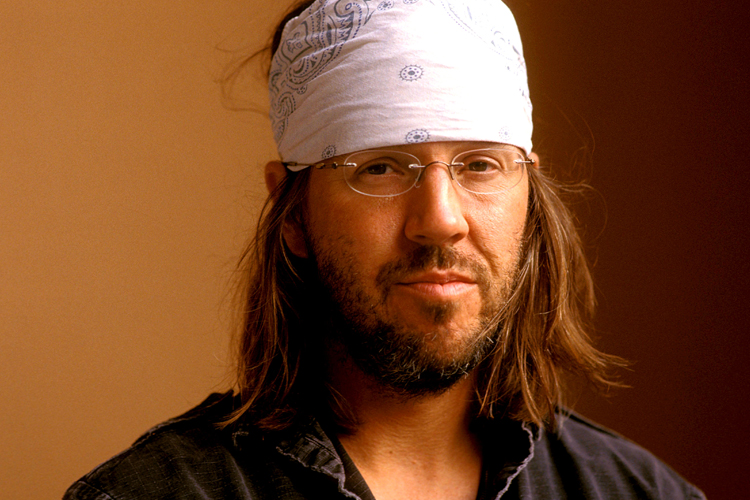
Last Words: His two-page suicide note is taken down from the internet.
David Foster Wallace was a great novelist of his time. His book Infinite Jest is still one of the most-read books ever with over a million copies being sold worldwide.. It explores addiction and finding meaning in modern life. Despite his success, Wallace struggled with severe depression for most of his life. He had been on antidepressants since his twenties, which helped him manage his condition.
However, in 2007, he stopped taking the medication due to its side effects. The withdrawal was devastating, and his depression returned with full force. On September 12, 2008, he hung himself. He left behind a lengthy suicide note and carefully arranged the manuscript for The Pale King, his unfinished novel, which was later published posthumously.
13. Percy Bysshe Shelley (1792-1822)
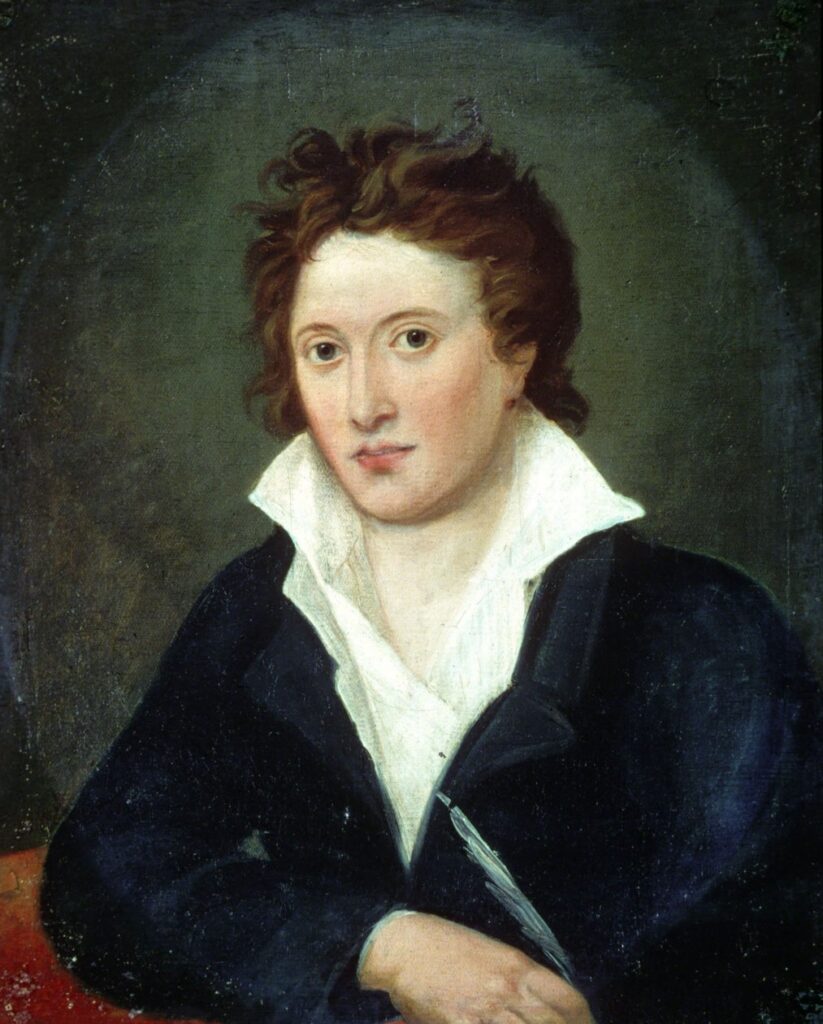
Last Words: Not known.
One of the most celebrated poets of the Romantic Era, Percy Bysshe Shelley, also faced an unusual death. He was a radical thinker who challenged the government’s political views. He was born into an aristocratic family, had expensive tutors, and attended one of England’s poshest schools, Oxford University. He was one of the greatest poets of all time. His most famous poems are Ozymandias, Prometheus Unbound, and To a Skylark.
He fell in love with Mary Shelley, the author of Frankenstein, who was born into a middle-class family. Three years into the marriage they realized that they had made a mistake by marrying each other so soon. This came as a shock to Percy’s first wife, Harriet. She was heartbroken by his betrayal and killed herself a few days later.
Mary held herself accountable for Harriet’s death and was riddled with guilt. Percy had four children with Mary, out of which three died from various diseases. In 1822, just before Shelley was about to turn 30, he drowned in a storm while sailing off the coast of Italy. His boat, the Don Juan, capsized in rough waters, and Shelley’s body was later found washed ashore.
Conclusion
These authors who died tragically remind us that those who see the world most vividly also feel its weight the heaviest. Their books continue to move, challenge, and inspire us, proving that while their lives may have been cut short, their stories never will be. Tragic deaths may have claimed their lives but their words are immortal.
11 Books That Are Worth Reading By Nobel Prize In Literature Winners
30 Words And Phrases Invented By Shakespeare That We All Use


Leave a Reply